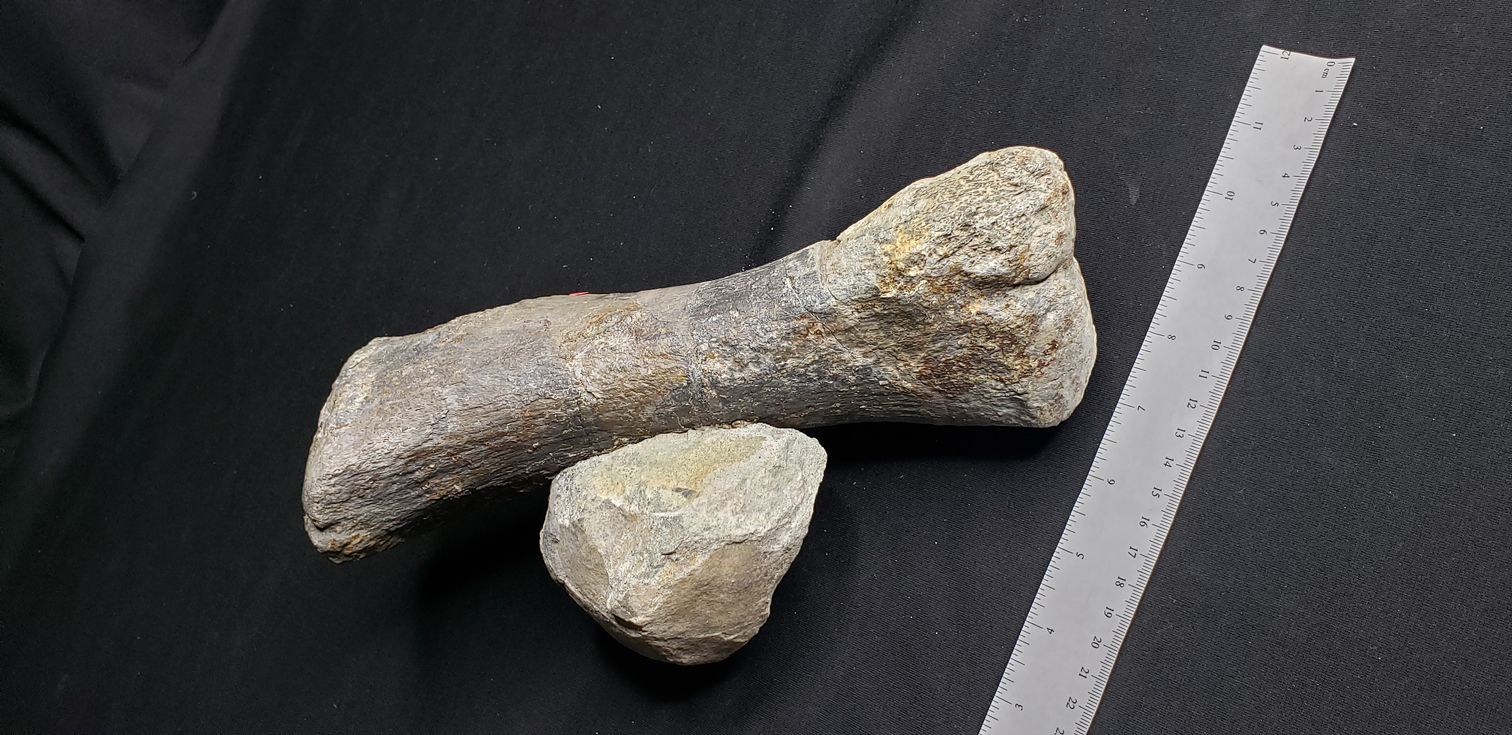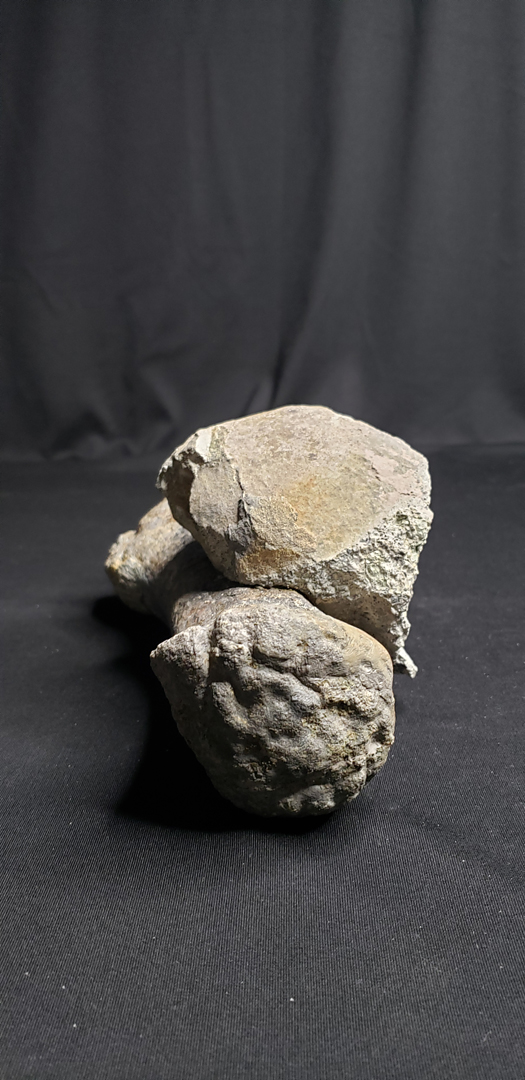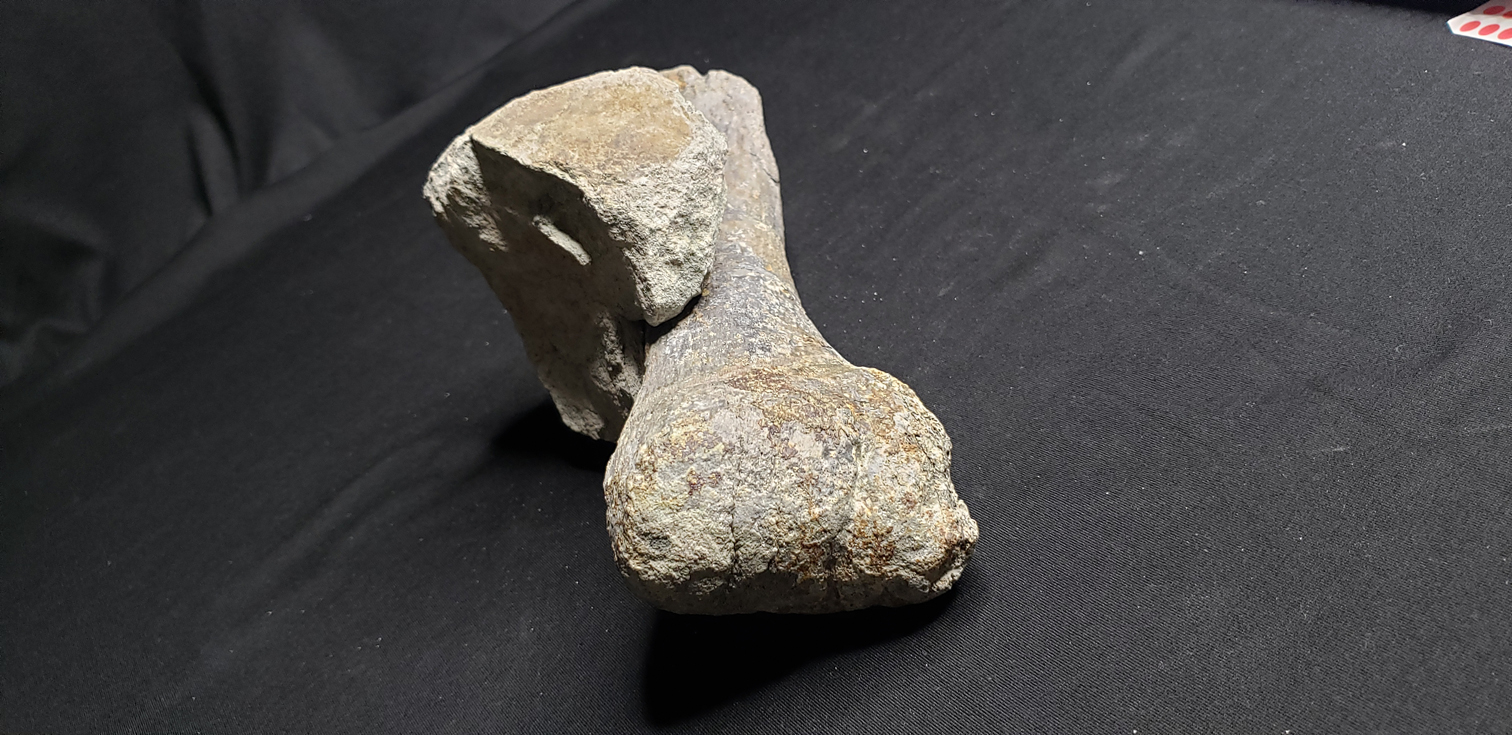

Jurassic Morrison Camarasaurus Metacarpal
Camarasaurus sp. metacarpal
Morrison Formation
Upper Jurassic
Moffat County, Colorado
Morrison Formation
Upper Jurassic
Moffat County, Colorado
This specimen is a metacarpal of Camarasaurus in its original matrix. The bone is very well preserved and has excellent detail. It probably represents the 4th digit of the right manus. The bone is 10 inches long and 3.5 inches at its broadest point. Restoration includes a 1-inch sliver about mid-shaft. Other minor restoration is filling of natural fractures and a small patch on the proximal articular surface. The specimen was recovered from a channel sandstone lens in the Brushy Basin Member of the Morrison Formation. In our dinosaur quarry there are several channel-sandstone sequences that are found in a paleo-valley-fill sequence.
Camarasaurus was a genus of quadrupedal, herbivorous dinosaurs. It was the most common of the giant sauropods to be found in North America. Its fossil remains have been found in the Morrison Formation of Colorado and Utah, dating to the Late Jurassic epoch (Kimmeridgian to Tithonian stages), between 155 and 145 million years ago. Camarasaurus presented a distinctive cranial profile of a blunt snout and an arched skull that was remarkably square. It likely travelled in herds, or at least in family groups. The name means "chambered lizard", referring to the hollow chambers in its vertebrae.
Camarasaurus is among the most common and frequently well-preserved sauropod dinosaurs. The maximum size of the most common species, C. lentus, was about 15 meters (49 ft) in length. The largest species, C. supremus, reached a maximum length of 23 meters (75 ft) and maximum estimated weight of 52 tons.
The arched skull of Camarasaurus was remarkably square and the blunt snout had many fenestrae, though it was sturdy and is frequently recovered in good condition by paleontologists. The 19 centimeter long (7.5 in) teeth were shaped like chisels (spatulate) and arranged evenly along the jaw. The strength of the teeth indicates that Camarasaurus probably ate coarser plant material than the slender-toothed diplodocids
Camarasaurus was a genus of quadrupedal, herbivorous dinosaurs. It was the most common of the giant sauropods to be found in North America. Its fossil remains have been found in the Morrison Formation of Colorado and Utah, dating to the Late Jurassic epoch (Kimmeridgian to Tithonian stages), between 155 and 145 million years ago. Camarasaurus presented a distinctive cranial profile of a blunt snout and an arched skull that was remarkably square. It likely travelled in herds, or at least in family groups. The name means "chambered lizard", referring to the hollow chambers in its vertebrae.
Camarasaurus is among the most common and frequently well-preserved sauropod dinosaurs. The maximum size of the most common species, C. lentus, was about 15 meters (49 ft) in length. The largest species, C. supremus, reached a maximum length of 23 meters (75 ft) and maximum estimated weight of 52 tons.
The arched skull of Camarasaurus was remarkably square and the blunt snout had many fenestrae, though it was sturdy and is frequently recovered in good condition by paleontologists. The 19 centimeter long (7.5 in) teeth were shaped like chisels (spatulate) and arranged evenly along the jaw. The strength of the teeth indicates that Camarasaurus probably ate coarser plant material than the slender-toothed diplodocids










